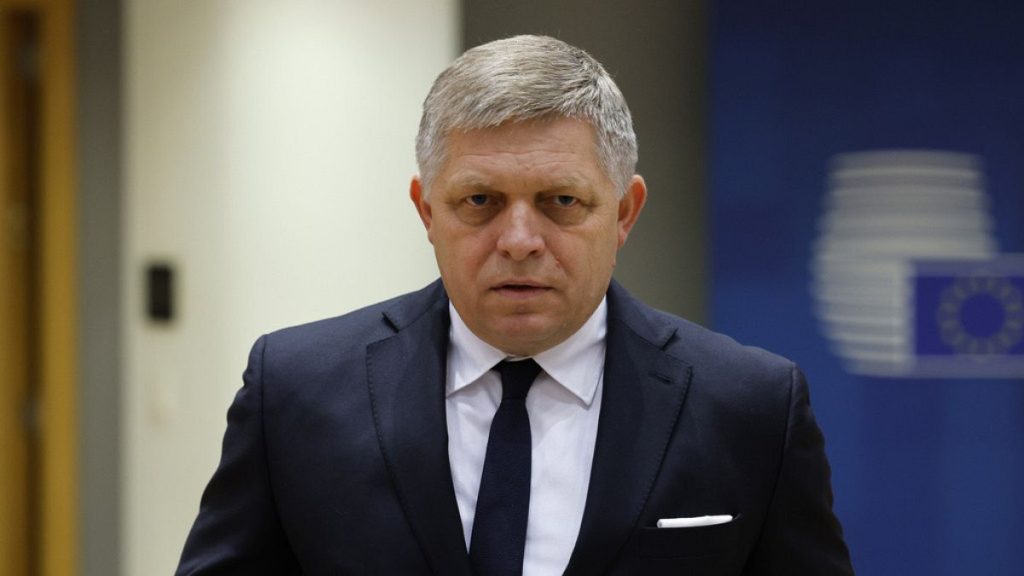Slovakia’s Prime Minister Robert Fico has expressed deep concern over the termination of the gas transit agreement between Ukraine and Russia, predicting dire consequences for the European Union while downplaying the impact on Moscow. Fico, known for his Kremlin-friendly stance, has consistently argued that the cessation of Russian gas flow through Ukrainian pipelines will primarily harm the EU, leading to escalated energy prices and substantial financial losses for member states. His warnings come amidst a backdrop of escalating tensions between Russia and Ukraine, further complicated by the ongoing war and the EU’s efforts to reduce its dependence on Russian energy. Fico’s public pronouncements have sparked controversy, particularly given his recent meeting with Russian President Vladimir Putin, a rare occurrence for an EU leader since the onset of the war. This meeting, coupled with his subsequent threats of retaliatory measures against Ukraine, has raised eyebrows and fueled speculation about Slovakia’s position within the EU and its relationship with Russia.
The terminated gas transit deal, a long-standing arrangement facilitating the flow of Russian gas to European markets via Ukrainian pipelines, has been a crucial component of the European energy landscape. Its expiration signals a significant shift in the energy dynamics between Russia, Ukraine, and the EU. Fico’s alarm stems from Slovakia’s historical reliance on cheap Russian gas, a dependence he believes will be difficult and costly to replace. He has estimated potential losses for the EU to reach a staggering €120 billion over the next two years, with Slovakia alone facing annual losses of up to €500 million in transit fees. These projections underscore the economic stakes involved and highlight the challenges facing Slovakia and the broader EU in securing alternative energy sources. Fico’s concerns also reflect the complex interplay of economic and geopolitical factors shaping the European energy landscape, with the war in Ukraine serving as a stark reminder of the vulnerabilities associated with energy dependence.
Fico’s repeated warnings about the economic fallout from the terminated gas deal have been met with skepticism and criticism from some quarters. Critics argue that he overstates the negative impact on the EU while underestimating Russia’s potential losses. They point to the EU’s ongoing efforts to diversify its energy sources and reduce its reliance on Russian gas, suggesting that the bloc is better positioned than Fico suggests to weather the storm. Moreover, they contend that Russia, too, will suffer economic consequences from losing a key export market, albeit potentially less severe than those facing the EU. This divergence of opinion reflects the complex and often contentious debate surrounding the economic implications of the gas transit deal’s termination, with various stakeholders offering contrasting assessments of the potential winners and losers.
Despite Fico’s dire predictions, Slovakia has declared that it will not experience a gas shortage in the wake of the terminated Russian supply. This assertion stems from a series of proactive measures taken by the Slovak government to secure alternative gas sources. Bratislava has signed a short-term pilot contract with Azerbaijan and a deal to import liquefied natural gas (LNG) from the United States via a pipeline from Poland. These agreements, coupled with access to gas networks in Austria, Hungary, and the Czech Republic, provide Slovakia with a diversified portfolio of energy sources, mitigating the immediate impact of the lost Russian supply. This proactive approach underscores Slovakia’s determination to secure its energy needs and lessen its dependence on Russia, a strategic shift driven by both economic and geopolitical considerations.
The termination of the gas transit deal has further strained the already tense relationship between Slovakia and Ukraine. Fico’s public spat with Ukrainian President Volodymyr Zelenskyy, coupled with his threat to halt backup electricity supplies to Ukraine, has exacerbated tensions and raised concerns about potential escalation. Ukraine promptly dismissed Fico’s threat, with Poland offering to increase energy exports to Ukraine should Slovakia follow through. This diplomatic maneuvering highlights the delicate balance of power in the region and the potential for the energy crisis to further destabilize relations between neighboring countries. It also underscores the importance of regional cooperation and solidarity in addressing the challenges posed by the disrupted energy landscape.
The gas transit deal’s demise represents a significant turning point in the European energy landscape, with far-reaching implications for the EU, Russia, and Ukraine. While Fico’s warnings about the economic fallout for the EU warrant consideration, his Kremlin-friendly stance and recent actions have fueled controversy and raised questions about his motivations. Slovakia’s proactive measures to secure alternative gas sources demonstrate its determination to navigate the challenges ahead. However, the escalating tensions between Slovakia and Ukraine underscore the potential for the energy crisis to exacerbate existing conflicts and further destabilize the region. The long-term consequences of the terminated gas transit deal remain to be seen, but it is clear that the event marks a pivotal moment in the ongoing reshaping of the European energy order.










